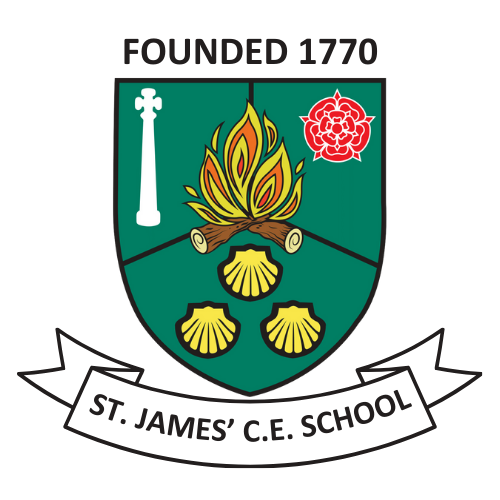Geography
Link Governor: Mr A Hammersley
Intent
At Leyland St James' CE Primary School our Geography curriculum is designed to inspire a curiosity and fascination about the world. Our curriculum is inclusive to every child and equips them with knowledge about places, people, resources including the key natural and human environments of Earth.
We are committed to providing children with opportunities to investigate and make enquiries about their local area of Leyland and Lancashire to enable children can develop an understanding of who they are, their heritage and what makes our local area unique and special. Through high quality teaching, we develop the following essential characteristics of geographers:
- To develop in children the skills of interpreting a range of sources of geographical information, including maps, diagrams, globes, aerial photographs and Geographical Information Systems (GIS).
- To help children understand how the human and physical features of a place shapes its location and can change over time.
- A rich understanding of geographical knowledge and vocabulary;
- Excellent fieldwork skills as well as other geographical aptitudes and techniques;
- The ability to express well-balanced opinions, rooted in very good knowledge and understanding about current issues in society and the environment.
Implementation
In Geography, we implement an inclusive curriculum that meets the statutory requirements of the National Curriculum, incorporating the four main areas of learning at each key stage: place, location, human and physical and geographical skills and fieldwork.
Our curriculum is well-planned and provides literacy-rich, cross-curricular opportunities providing sophisticated links to provide effective links across subjects to ensure cohesion across the whole curriculum.
At the beginning of each Geography unit, children demonstrate their prior knowledge, which helps to inform planning, teaching as well as understanding the retention of prior learning. A series of stimulating lessons are planned, with clear knowledge and skills-based learning objectives and subject-specific vocabulary.
Enrichment opportunities, including outdoor learning, inspirational visitors and Geography field trips, provide our children with rich experiences and enhance teaching, learning and knowledge.
Impact
Within Geography, we strive to create a supportive and collaborative ethos for learning by providing investigative and enquiry based learning opportunities. Emphasis is placed on investigative learning opportunities to help children gain a coherent knowledge of understanding of each unit of work covered throughout the school. Our geography curriculum is high quality, well-thought-out and is planned to demonstrate progression. We focus on progression of knowledge and skills and discrete vocabulary progression also form part of the units of work. Children will deepen their understanding of the interaction between physical and human processes and how this affects landscapes and environments. We measure the impact of our curriculum through the following methods:
- Assessing children’s understanding of topic after the unit is taught.
- Images and videos of the children’s practical learning.
- Interviewing the pupils about their learning (pupil voice).
- Moderation staff meetings where pupil’s books are scrutinised and there is the opportunity for a dialogue between teachers to understand their class’s work.
- Annual reporting of standards across the curriculum.
- Marking of written work in books.

